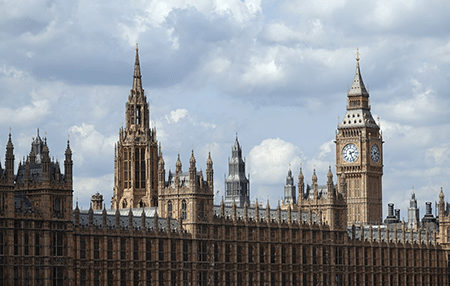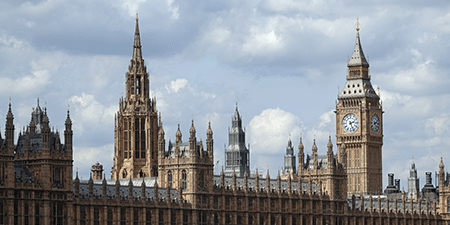
The Autumn Budget is one of the most significant events in the financial calendar, where the Government outlines its economic priorities, sets tax rates and reveals how it plans to allocate public spending. This year’s Autumn Budget is highly anticipated, as it’s the first one from the new Labour Government with Rachel Reeves as Chancellor.
With the economy facing multiple challenges, including a substantial £22bn gap in Government finances, many are expecting some tough decisions to be made.
Here’s a breakdown of when the Budget is, what we can expect and the potential changes that might affect households and businesses.
When is the Autumn Budget 2024?
Chancellor Rachel Reeves is set to deliver the Autumn Budget on Wednesday 30th October at around 12.30pm UK time. The announcement will be broadcast live on various news channels and will be followed by debates in Parliament to discuss the proposed changes.
It’ll be an important moment for shaping the country’s economic direction, especially since Reeves has warned that some “painful” decisions will need to be made to tackle the ongoing financial challenges.
What might the Autumn Budget contain?
Although a lot of what’s in the Budget is still speculative, there are a few key arears already being talked about. Here are some of the major issues that might come up:
1. Tax changes: Capital Gains Tax and Inheritance Tax
There is a widespread speculation that the Government might target wealthier individuals through changes to Capital Gains Tax (CGT) and Inheritance Tax (IHT).
- Capital Gains Tax is charged on the profit made when selling assets like second homes or valuable investments. Currently, the top rate for CGT is 24%, whereas the highest income tax rate is 45%. Some experts believe Reeves could raise CGT to bring it closer in line with income tax rates to help bridge the financial gap.
- Inheritance Tax is a 40% tax applied to the value of an estate above £325,000. There are rumours that the Government could remove or reduce some IHT reliefs, such as the residence nil-rate band, which allows people to pass on additional wealth tax-free if they own a home. This could mean higher tax bills for families inheriting property.
2. Pension tax relief adjustments
Another area expected to see changes is pension tax relief. Currently, pension contributions are topped up with tax relief based on the saver’s income tax bracket – 20% for basic-rate taxpayers and 40 to 45% for higher earners. However, introducing a flat rate of around 30% for everyone is rumoured to be considered.
3. Council tax reforms
Council tax, which helps fund local services, is another area facing potential reforms. The Government has ruled out increases to rates for now, but there is speculation about changes to discounts. One notable possibility is the removal of the single-person discount, which currently offers a 25% reduction for people living alone.
Additionally, the Labour Party may consider introducing a new flat-rate council tax, based on a property’s value rather than its current tax band.
4. Fuel duty
The Government is reportedly considering increasing fuel duty, which has been frozen since 2011 and temporarily cut by 5p in 2022. The Office for Budget Responsibility (OBR) has warned that continuing to freeze the duty could cost the Treasury £15bn by 2029.
5. Social care and housing policies
One confirmed change is that the Winter Fuel Payment will become means-tested. Currently, pensioners receive up to £300 annually to help with heating costs, but moving forward, only those on means-tested benefits will qualify. This is expected to save the Government around £1.4bn.
In terms of housing, there’s been a lot of speculation around the future of the Right to Buy scheme ahead of the Autumn Budget. While some reports suggested it might be scrapped, Deputy Prime Minister Angela Rayner has confirmed that the scheme will remain, though reforms are likely.
Labour has promised a review to ensure social housing isn’t depleted at the current rate, with Rachel Reeves’ first Budget as Chancellor expected to bring changes to the policy. This could include adjustments to the discounts and additional protections for newly-built social housing.
6. Personal Independence Payments (PIP)
Another potential reform involves Personal Independence Payments (PIP), which provide financial assistance to those with long-term disabilities or illnesses. The Labour Government may restrict eligibility criteria and alter the assessment process to reduce the number of claimants. There’s even talk of replacing the current cash benefits with a voucher-based system, although this is still under consultation.
What has already been announced?
While many of the changes are still rumours, there are some that have already been confirmed:
- State pension rise: The state pension is expected to rise by 4% in April 2025, in line with the triple lock guarantee. This means that the retirees on the full new state pension will receive about £11,962 annually, making it a rise of 460 compared with now
- VAT on private schools: As part of Labour’s commitment to increasing public revenue, VAT will be applied to private school fees starting from 1st January 2025.
The bigger picture: UK economic challenges
The UK’s current economic situation sets the stage for these upcoming announcements. Even though there was some recovery earlier in the year, growth has stalled since mid-2024. Rachel Reeves has pointed out a £22bn gap in public finances, which she says needs to be dealt with immediately.
The Autumn Budget 2024 is likely to bring big changes to the UK’s tax system, benefits and public spending. While the goal is to tackle the country’s financial challenges, it could also lead to higher taxes and reduced benefits and reduced benefits for many households.
It’s important to stay up to date, especially if changes to pensions, council tax, or capital gains tax might affect you.
Make sure you’re reviewing your financial plans with a professional to be ready for any changes the Budget might bring.
Is your financial situation worrying you?
Get in touch with our debt specialists at MoneyPlus for expert advice on the best solutions for your needs. We’re here to help you find the right path forward.

To discover more about how to manage your debt and to receive free debt advice, you can visit www.moneyhelper.org.uk.

